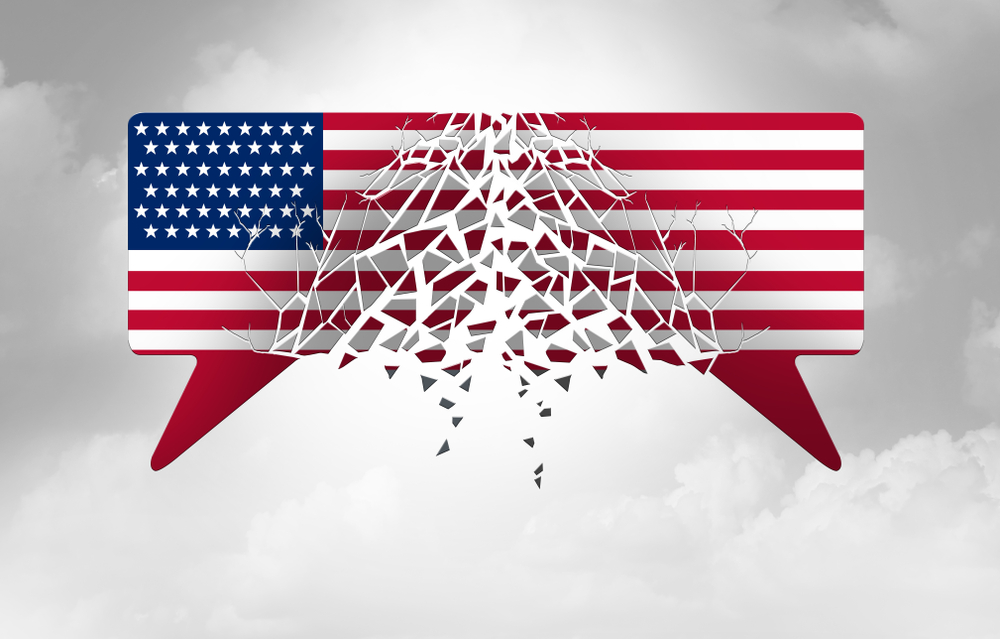Freedom Is More Subjective Than We Think
Joel Salatin|November 9, 2020

I grew up with a fairly simplistic view of personal injury or harm. The operative phrase was “Your fist’s freedom ends at my nose.”
In other words, you can flail your fists anywhere you want as long as you don’t hit me. The moment your fist contacts my nose, it’s wrong, illegal, criminal or whatever.
That nice clear line of distinction between freedom and curtailment of freedom is actually more subjective than most of us would like to admit.
This has become painfully obvious in the age of COVID-19.
At our farm store, we have a large blackboard at the entrance that says this:
MASK
Your body.
Your health.
Your choice.
The tension I’m about to put forward is uncomfortable and tricky because it requires placing myself in the shoes of someone with whom I vehemently disagree. So easy this is not. But for libertarians like me, facing this difficulty head-on is critical if we’re going to establish credibility and emotional equity with others.
Choice Is Not Enough
There’s the belief that my not wearing a mask enables my creepies to leap over onto your body and give you COVID.
Although this aggression is not as visible as the proverbial fist, it is indeed physical. Suddenly my choice touches you and we have a problem.
I’m not suggesting I should violate my belief that masks harm my health by reducing oxygen flow or that they stimulate disease spread due to being a petri dish of filth.
The fact that this is a minority view right now makes it no less valid and no less important to protect as a freedom.
The problem is that simply responding “my choice” to the person glaring behind the mask is not enough to describe my position.
That’s not enough to allay the other’s view that I don’t care about my fist hitting their nose.
Those of us who lean libertarian, myself included, can often toss our freedom of choice around cavalierly without appreciating what it sounds like to someone else.
If we can leverage a tense and judgmental encounter like this so that we converse respectfully rather than just glare back at the tyranny, we might gain some street cred for this and similar things.
Freedom-loving folks must realize that “freedom to not be sick” is where the mask mandators get their philosophical energy.
Freedom of choice cannot be the central theme unless it is tied to explaining a different view toward health, protection and the minority view.
Sally Fallon Morell, founder of the Weston A. Price Foundation, has just released a co-authored book explaining that viruses are our friends and not enemies.
How’s that for a different view?
The book, titled The Contagion Myth, offers a contrarian view on numerous fronts and dares to question the very foundation of the pandemic narrative.
My point is that the – let’s call it – fearful side has been extremely good at explaining their rationale for mask mandates.
We nonmaskers have not been as clear at explaining our case, especially in terms of our own fears. We don’t swap fear for fear. In most arguments, we shove our nonempathetic freedom of choice mantra in their fearful faces.
This is not the way to win friends and influence people.
We – I, for sure – must do better at engaging at the empirical level of “why.”
Getting to the Why
Simon Sinek in his classic marketing book Start With Why writes that the easy explanation of anything is “what.” A bit harder is “how.” The hardest, but most important, is “why.”
In the mandatory masking case, I would suggest that masking is the “what,” sterilizing everything is the “how” and germ theory is the “why.”
If that is the case, arguing only on the basis of choice does not get to the “why.”
We must actually offer an alternative to germ theory. That’s hard because these days it’s baked into our academic, scientific and medical communities. Every child grows up learning about Pasteur and germs. We don’t grow up hearing about Beauchamp and terrain.
As an extrovert idea salesman, I lie awake at night trying to figure out how to have a respectful conversation with people who violently disagree with me. I don’t want to just be a pain to them. I don’t want to be a parent who answers a child’s “Why?” with “Because I said so.”
And yet I find myself too often engaging in disagreements with that mindset.
An Honest Disagreement
I challenge all of us to appreciate the real and genuine fear at the heart of the mask mandators.
Yes, it’s easy to be frustrated, to say, “A pox on all of you crazy paranoid wimps. Can’t you see the foolishness of what you’re doing? Germs are in your eyes, your fingers, floating everywhere. You can’t screen them out. You can’t sterilize the world to immunity.”
But we must be the adults in the room and state our case clearly that the alternative and scientific view is that mandatory masking hurts health.
If we’re not prepared to defend and converse at that level, flipping around choice won’t win anyone over because in their view, I’m demanding the freedom for my fist to hit their nose.
None of us can defend that.
But if we can rejoinder that their fist hits our nose by them mandating a mask, then suddenly we have a disagreement on equal footing. Then we can whine and stomp our feet as much as they can.
Freedom is beautiful… when it’s clearly explained and defended. Some things are not a matter of freedom as much as they are a matter of honest disagreement over evidence.
In this masking controversy, I suggest nonmaskers must engage at the evidence level, not the freedom level.
The freedom level is simpler, but it’s not the best argument in this case.
What other thorny issues could use a debate over evidence instead of choice? Share your thoughts at mailbag@manwardpress.com.

Joel Salatin
Joel Salatin calls himself a Christian libertarian environmentalist capitalist lunatic farmer. Others who like him call him the most famous farmer in the world, the high priest of the pasture, and the most eclectic thinker from Virginia since Thomas Jefferson. Those who don’t like him call him a bioterrorist, Typhoid Mary, a charlatan, and a starvation advocate. With a room full of debate trophies from high school and college days, 12 published books, and a thriving multigenerational family farm, he draws on a lifetime of food, farming and fantasy to entertain and inspire audiences around the world.



